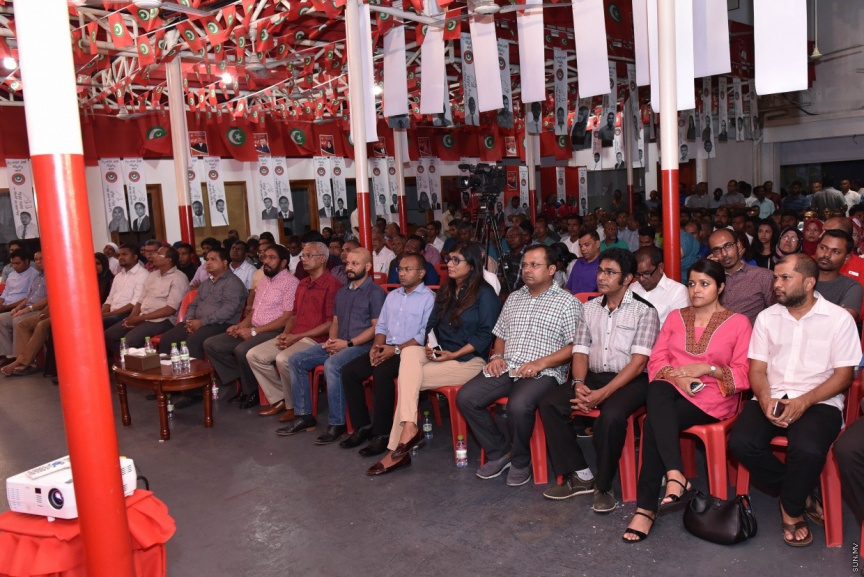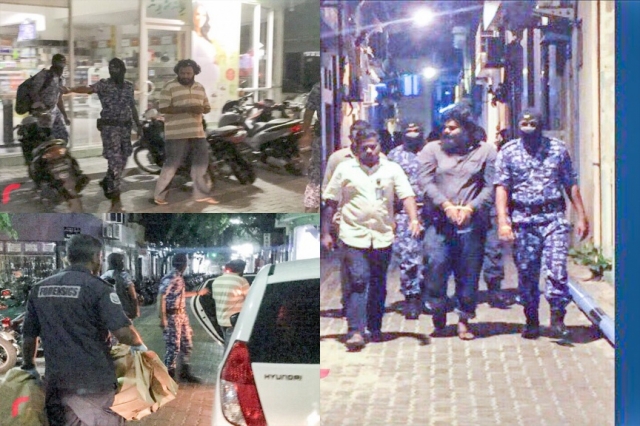In a significant judicial development, the High Court has ruled that the inclusion of new charges related to a 2017 IED bomb plot targeting a meeting at the Jumhooree Party headquarters in M. Kunooz was improperly made, requiring the case to restart at the Criminal Court.
The case involves four individuals accused of preparing an IED in 2017 within the office of Attic International Private Limited in M. Enboodhoo. The accused are:
- Iuthisam Mohamed Saeed, Gamaree/GDh. Madaveli
- Naasiu Mohamed, Vidhuvaru/HA. Hoarafushi
- Shimaan Shareef, Riveli/HDh. Naavaidhoo
- Mohamed Thasleem, Alanaasige/HA. Hoarafushi
Notably, Tasleem is also implicated in the May 6, 2021, bomb attack that targeted Parliament Speaker Mohamed Nasheed.
Amendments Spark Controversy
The charges were initially filed in 2017, accusing the suspects of preparing bomb materials and planning an act threatening national security. However, in 2022, following a change in the presiding judge, the state requested permission to amend the charge sheet and restart the preliminary stage. The amendments introduced allegations that the IED was intended for detonation at a meeting in Kunooz, citing police intelligence.
The High Court ruled that this amendment, which added 15 new pieces of evidence and significantly altered the scope of the charges, violated the Criminal Procedure Act. Specifically, the court noted:
- Under Article 91 of the Criminal Procedure Act, charges cannot be altered after preliminary hearings have commenced.
- The amended charges introduced events and evidence unrelated to the original allegations, infringing on the rights of the defense.
Judge Ali Nadeem of the Criminal Court subsequently nullified the amended charge sheet and reinstated the original 2017 charges.
Defense Calls for Restart
During the hearing, defense lawyers pointed out that they had not received the complete set of the original charges and requested a restart of the preliminary stage to present prior submissions and additional evidence. Judge Nadeem granted this request, effectively resetting a significant portion of the case, which has now spanned eight years.
Implications of the High Court’s Decision
The High Court highlighted the procedural irregularities in the state’s case, stating that the amended charges unfairly included allegations, such as the Kunooz bombing plot, that were absent in the initial charge sheet. The court noted that the back than opposition coalition, which included the Jumhooree Party, MDP, Adhaalath Party, and allies of former President Maumoon Abdul Gayoom, held meetings in Kunooz during the alleged timeframe.

The ruling emphasized that the defense’s right to a fair trial had been compromised by the state’s decision to add substantial new claims years after the original filing. The state’s assertion of a planned detonation in Kunooz was deemed unsubstantiated, with no evidence presented in the original charges to support such claims.
Path Forward
As the case returns to its original state, both the prosecution and defense face the challenge of revisiting evidence and arguments from nearly a decade ago. This decision underscores the judiciary’s commitment to procedural integrity while highlighting the complexities of prosecuting long-standing terrorism cases.
Observers now await the outcome of the renewed proceedings, which could set a precedent for how similar cases are handled in the Maldives judicial system.




